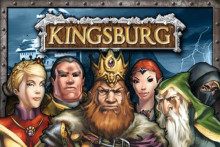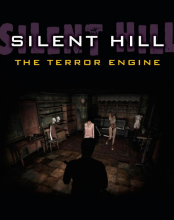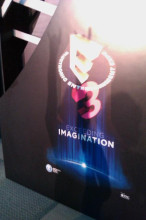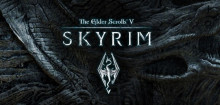David S Carter
Posts by David S Carter
•
It's the CVGA 5th Anniversary Week! We have many fun, celebratory and hopefully illuminating events and activities scheduled:Monday (today!): We kick off our week-long Classic Games Tournament. Show your mastery of classic video games by playing Dr. Mario, Sonic Blast, Double Dragon, Asteroids, and Paperboy. Prizes!Tuesday: Join us at 4pm in the Hatcher Library Gallery for a panel discussion with U-M faculty in "Game On! Video Game Research & Teaching at the University of Michigan."Wednesday: Our director Dave Carter will join AADL's Eli Neiberger in an appearance on the Comics Are Great podcast with host Jerzy Drozd in a talk about the intersection of comics & gaming.Thursday: We debut our new online exhibition "CVGA Disassembled"Saturday: Our big 5th Anniversary Bash! Join us at the CVGA from 1-5pm for food and fun and our Smash Tournament.
•
As we get started on yet another school year, we in the CVGA welcome you all, both new and returning students!We resume our regular Fall semester hours as of today:Monday: Noon - 9pmTues - Friday: 10am - 9pmSaturday: 1pm - 9pmSunday: Closed(But note: This Friday—the 6th—we will not open until 1pm.)Stop by and visit; we're in room B474 in the basement of the Duderstadt Center. We've added many new games over the summer and even a few new systems, including an Apple ][!To learn more about the CVGA, please visit our Library Guide at http://guides.lib.umich.edu/cvgaThis fall marks the 5th anniversary of the CVGA. We are in the process of planning several events to commemorate the occasion, mostly in November. Stay tuned to this space for more details, as well as our Twitter and Facebook accounts. (Follow us! Friend us! It's fun!)
•
Since the announcement of Micrsoft's next generation Xbox One gaming and entertainment console earlier this week, we've received several inquiries about our thoughts on how it's announced features, particularly the cloud computing and DRM aspects, will affect how we deal with it in the archive. Below are my (Dave's) initial thoughts:I've been following somewhat the information about the Xbox One since its announcement earlier this week. While we don't have many details yet, what I've read so far gives me cause for concern as to how we'll be able to work with the new system in the Computer & Video Game Archive.As far as offloading game play to the cloud and requiring an Internet connection to function, this offers a challenge that is in many ways similar to dealing with MMORPGs like World of Warcraft. If the online experience is part of the game, how do you replicate that experience when the online component is no longer available? (And in the case of WoW, even if you have the game and have a server on which to run it, is it really the same experience without several million other players interacting? Ten or twenty years from now it will be essentially impossible to experience WoW.)There is a history of manufacturers not supporting their old gaming platforms; e.g. in 2010 when Microsoft stopped supporting the original Xbox on Xbox Live. If you want to play Halo 2 online multiplayer on your Xbox? Sorry, you can't. And that's for a game that's less than 10 years old.But I can take a game and game system from 30 years ago, plug them in and they still work and play fine. Even for companies that are long defunct. Will the same be true in even 10 years for games for the Xbox One?I'm also concerned about new DRM restrictions, such as requiring a game to be installed and tied to a specific user account. This also presents challenges to us (not to mention to the First-Sale Doctrine...) Though we've been dealing with this sort of thing with PC-based games for several years now and I'm sure we'll deal it, it doesn't fill me with warm fuzzy feelings.Still, with both of these issues, the proof of the pudding is (as they say) in the eating. We'll have to wait until more details are available before evaluating if the Xbox One will be a system that we can support for archival purposes. Or if we're just tilting at windmills.
•
Word has come to us of another new game-related class being offered in Fall 2013 here at the University of Michigan:Technology and Play This course considers the social science of play and interactive media technology. The three central questions addressed in this course are: “What is play?”, “How does technology mediate play?”, and “What are the consequences of this mediation?” Over the semester, we’ll investigate the social scientific and humanities research on play, the structure of games, and the societal consequences of mediated play for both children and adults. A special focus will be “games for change” (a.k.a. “serious games”) that have an educational purpose. The term will be organized around competing theories of play (e.g., development, fate/chance, power, identity, fantasy, self-fulfillment, nonsense), and will be illustrated with examples from computer games. This is a project-based course. Throughout the semester we will work toward producing two conceptual design projects for playful technologies. These are roughly equivalent to a midterm and a final, or a short and a long paper. As these are conceptual projects, technical skills are not required. Technology and PlayF13 M/W 4 - 5:30 p.m.Undergraduate Section: COMM 408.001Graduate Section: COMM 840.001No prerequisites.Instructor: Christian Sandvig (csandvig@umich.edu)Note that you must e-mail the instructor to enroll in the graduate section.
•
If you are a student here at the University of Michigan, there are a couple of new video game-related courses being offered:For Summer 2013:COMM 488-201, SAC 455-202 - Video Games, Culture, & Contexts This course takes as its focus the cultural impact of video games from a number of critical perspectives. Just as movies and television have a rich history, video games develop out of a number of social, economic, and technological structures. We will examine video games as cultural texts that are part of a complex, cultural landscape—objects revealing much about cultural anxieties, ideologies, and assumptions. We will analyze a number of video game texts, ranging from early arcade style games, to console games, to PC games, to games for mobile phones. A range of genres within these game texts will be discussed, such as first person shooters, massively multi-player online games, and casual games—unpacking both the formal aspects of the game and the underlying meaning of game narratives. How and by whom are video games produced, how does the industry market particular games to its perceived audience, who plays games and why, and what is so serious about “serious” games? We will draw from a range of methodological and theoretical texts within the field of game studies: critical cultural, ethnographic, media effects, industrial, and historical. (Instructor: Julia Lange) And for Fall 2013:MUSPERF 300 - Video Game MusicThis course surveys game music from the first synthesized "bleeps" and "bloops" to modern orchestral compositions. Techniques are learned to aurally analyze game music. Students will create compositions using computer software as a final project. Course is designed for non-music majors; the ability to read standard music notation is not needed. (Instructor: Matthew Thompson)

Did you know that the CVGA has more than just video games? When we moved to our current location in January 2011, we added a small section of board and card games, as well as a couple of tables on which to play them. We now have 120 board and card games in the CVGA. Some of the most popular games are Dominion, Settlers of Catan, and 7 Wonders.

Which is to say that the much-requested Battlefield 3 is now available in the archive.I don't know if the game has a dancing Pat Benatar, but if it did that would be kind of awesome...

Our friends at The University of Michigan Press have released Silent Hill: The Terror Engine, the latest volume in their Landmark Video Game series.

Julia Lange, a doctoral student who has been making occasional use of the CVGA for her research, was at E3 earlier this summer, and shared with us a few photos she snapped with her cellphone: Thanks Julia!
